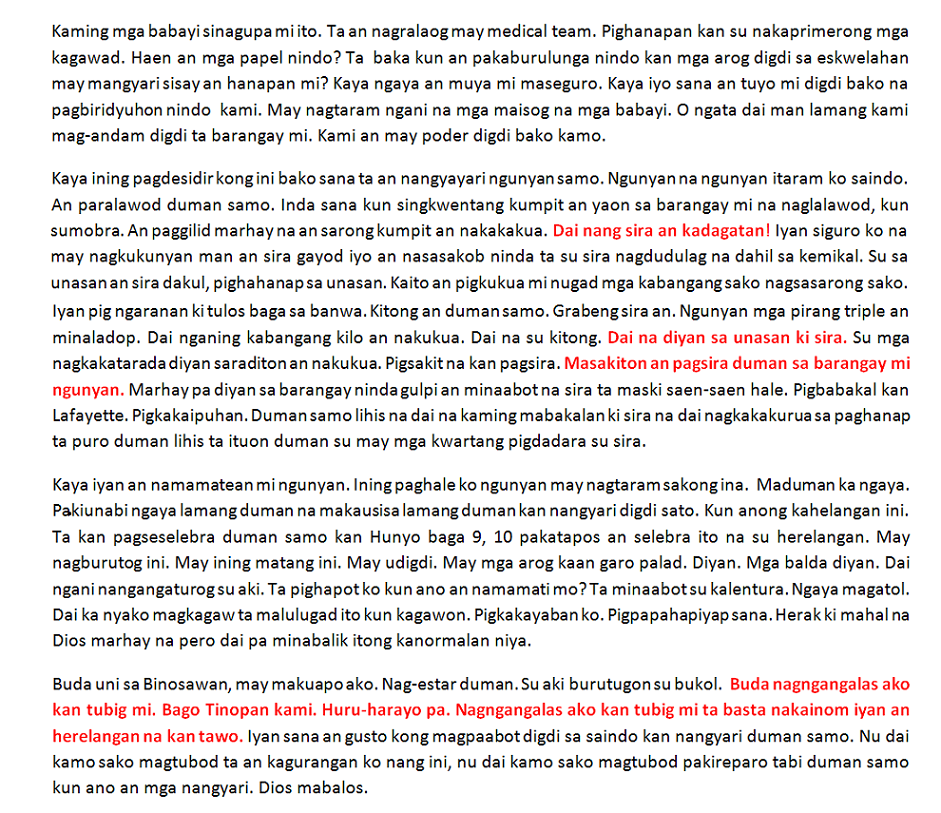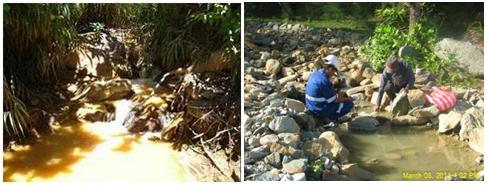Business World
Vol. XXI, No. 176
Wednesday, April 09, 2008
The Nation
KORONADAL CITY — All is not lost for communities opposing large-scale mining projects insofar as legal remedies are concerned.
Marvic F. Leonen, University of the Philippines vice-president for legal affairs, said here last week that a group has challenged anew the decision of the Supreme Court upholding the constitutionality of the Philippine Mining Act of 1995, or Republic Act 7942.
Asked on available legal remedies for a stop to large-scale mining projects despite two favourable rulings of the Supreme Court on the constitutionality of the 1995 law, Mr. Leonen said some lawmakers and affected communities in Mindanao and Nueva Vizcaya filed last month two separate petitions with the Supreme Court to scrap the law.
He identified the lawmakers as Akbayan party-list Rep. Ana Theresia Hontiveros-Baraquel, Quezon Rep. Lorenzo R. Tañada III (4th district ) and Bayan Muna party-list Rep. Teodoro A. Casiño, Jr.
"Their contention was that the recent DENR (Department of Environment and Natural Resources) administrative order on the FTAA (financial and technical assistance agreement) is illegal and unconstitutional.
"Also, the MPSA [mineral production sharing agreement] in the law is unconstitutional because it was not equitable," he told BusinessWorld on the sidelines of the religious-led "Forum on legal issues and other implications of Mining."
On Jan. 27, 2004, the Supreme Court nullified all provisions concerning the FTAA and other permits that can be granted to foreign-owned corporations such as the exploration permits and mineral processing permits. The decision also declared the FTAA of Western Mining Corp. ( Philippines ) as unconstitutional and void.
But 11 months later, the Supreme Court reversed its decision by a vote of 10-4, and declared the Mining Act constitutional.
In early 2006, the Supreme Court declared with finality the constitutionality of the mining act.
"Indeed all the conceivable aspects of this litigation — factual, constitutional, legal, philosophical, technical, financial, ecological, environmental and technological — have been extensively taken up and addressed during the court’s lengthy and purposeful debates and deliberations," a Supreme Court en banc resolution said at the time.
The Supreme Court may or may not call for an oral argument because normally, it decides on the documents submitted, said Mr. Leonen, who is one of the petitioner’s counsels.
He added that an oral argument may be called if the justices see the petition as an important issue.
The main difference between an FTAA and an MPSA is project scale and ownership.
Under an FTAA a corporation can be 100% foreign owned while with an MPSA ownership must be at least 60% Filipino, with up to 40% foreign ownership.
Tenement holdings under an MPSA are limited to 32,400 hectares while under an FTAA the maximum is 81,000 hectares, a mining industry brief showed.
In a statement, the Legal Rights and Natural Resources Centre-Kasama sa Kalikasan said the critics also pleaded the Supreme Court to issue a temporary restraining order on the ongoing FTAAs and MPSAs and cancel or deny existing applications.
































































































































No comments:
Post a Comment